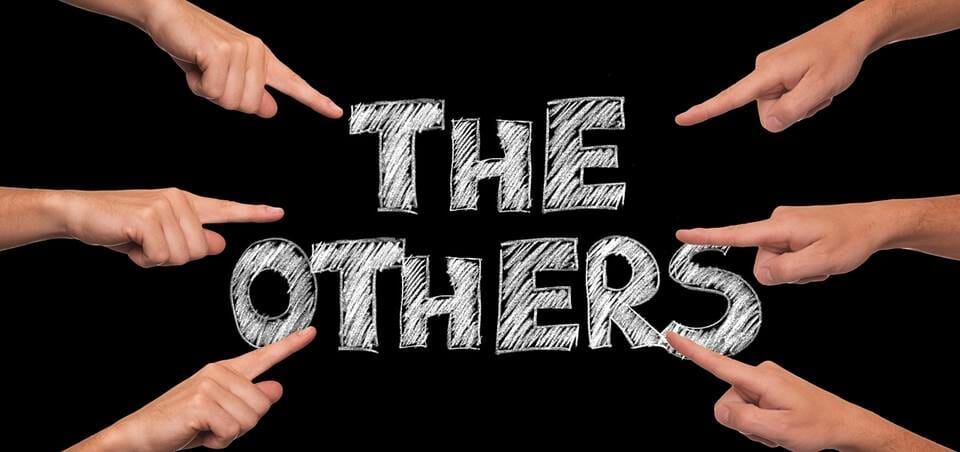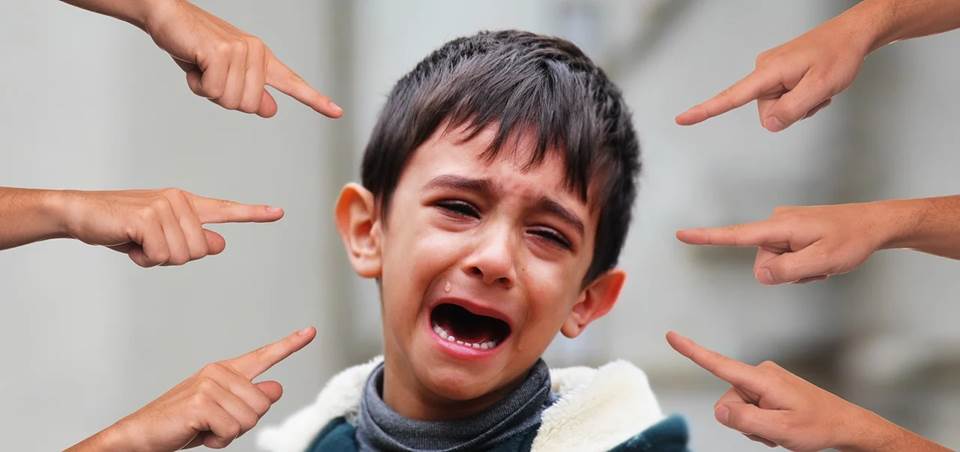
Kids sometimes do things that others don’t like. Sometimes, they break things and even hurt others. It’s important to help them understand what happened, but parents should never force them to say, “I’m sorry”.
I think the idea of saying “sorry” is distorted because of social “expectations” that if someone is hurt, we must have done something to cause it. This makes parents “teach” their kids to say “sorry” even if it comes without actual “sorrow”.
It’s very easy to see it with young children. They take a game away from another kid (sibling), the other kid cries. Immediately, the parents scold them and force them to go to the other kid and say they’re sorry.
This is humiliating. It plants in those kids the idea that saying “sorry” is admitting guilt, even if they don’t think they’re guilty. And it builds up and stays with the kids.
Understanding guilt and resentment
Guilt feelings are very hard to carry and do a lot of damage to our self-esteem. This damage touches many aspects of life for a long time. Guilt is a very big topic in therapy.
Feeling guilty occasionally isn’t necessary a bad thing. It means you have morals that you think you’ve violated, either intentionally or by accident. However, it’s bad when someone else throws it on you. Because that puts pressure on you to live by other people’s moral code (usually someone in power).

When we feel guilty about something, without external pressure, it’s triggered by our sense of justice. It’s good for us, because we can do something about it. We can change our behavior, or we can change our attitude, and we hold the power to do something different.
When someone else tells us we should feel guilty, this goes against our sense of justice. We feel forced, pressured and humiliated, because someone else holds the power.
Forced guilt creates resentment
At a subconscious level, “forced guilt feelings” always produce resentment. Resentment is what we feel when we do things we don’t believe we should do out of fear.
People develop resentment when they try to please someone, when they are weak, when they are “forced” to do things, and when they don’t think they have a choice. The problem is that resentment is a poison, running through our body and causing chaos.
Nothing on earth consumes a man more quickly than the passion of resentment
Friedrich Nietzsche
Again, guilt that comes from inside is not a problem, because it only strengthens our morals and our definition of what’s right and wrong. It helps us live in peace with ourselves.
But when the guilt is forced on us by someone else, it builds resentment and that’s not healthy for us.

Forced guilt takes away personal power
Forced guilt triggers many other feelings and behaviors that aren’t healthy for us, like doubt, low self-esteem, depression, inadequacy, imposter syndrome, and shame. That’s why guilt is hard to deal with and why many adults seek therapy later in life to get rid of these issues.
When we feel internal guilt over something we have or haven’t done and it’s internal, we hold the power to change it. When we have “forced guilt feelings”, the power belongs to someone else.
Real sorrow comes from feeling responsible for something. It comes from the inside. It triggers regret, which is healthy for us, and gives us the power to make a real change from the inside.
When someone else forces you to take responsibility and say you’re sorry, the regret isn’t there. Saying “I’m sorry” will only damage your ability to make a change.
You see, real change that happens from within. When forced, it’s like makeup. It’ll come off as soon as you wash your face or take a shower.
The Guilt Trip

People who have been forced to feel guilty by being blamed, humiliated and forced to say, “I’m sorry”, learn over time to use other people’s guilt feelings, and take them on a guilt trip. This is a very negative, manipulative was to pressure others to do what they want.
People use guilt trips to make others do things they wouldn’t do otherwise. When I was young, we had jokes about Polish people who mastered the art of guilt tripping.
One clever lady even made a business selling gadgets, cards and shirts with polish “sayings”. The gist of most of them is, “I’m miserable because of you”.
For the guilt tripping person, “It’s all your fault” runs their life. Around them, there are always conflicts and communication challenges.
Why?
Because they don’t take responsibility for their own feelings and don’t understand that forcing others to feel guilty, even if they apologize, won’t change anything. It gives them momentary satisfaction of power, but only makes others resent them.

When parents force their kids to say “I’m sorry” they are, in fact, guilt-tripping them. When this happens, children will just repeat the things they did.
I work with people that do whatever they want, and think that saying, “I’m sorry,” makes up for all the damage they do. The resentment they feel from being forced to apologize makes them abuse the concept of apology.
How guilt tripping works
Any person who blames you for their unpleasant feeling, and claims you need to do something to change that feeling, is guilt-tripping you.
We do that a lot!
We do it because the responsibility for everything we feel is heavy and. We that we’ve failed to create a better situation and in order to be OK, we must blame other people.
Can we totally avoid it?

Probably not. But we can minimize it by being aware of ourselves blaming others and realizing that change does not happen when we do it. In fact, guilt tripping does the exact opposite.
Of course, children don’t understand that parents do this out of weakness. So it just increases their sense of inadequacy and makes them more vulnerable.
Awareness is always the key to stop ourselves from putting force on others to “feel guilty” and claim our power back.
Here are some examples of guilt tripping.
- Blaming
- Saying, “You’re not good/smart/loving/caring/pretty/slim/able enough” – all “enough” variations
- Pointing out other people’s faults
- Comparing yourself to the other person – “I’m better than you”
- Making sarcastic remarks
- Using passive aggressive behavior
- Demanding an apology

- Giving “the silent treatment”
- Putting conditions on the relationships – Please note, boundaries are not the same as conditions. Boundaries create a safe space around the person. But conditions force the other person to live by your standards. Examples: “If you love me, you’ll…” “If you want me to help you, you have to…”
- Being demanding
- Putting down
- Calling names
- Gaslighting – emotional abuse that makes the other person question their own sanity
- Talking and behaving like a martyr – “Poor me”, “I’m suffering so much”
- Asking, “How could you do that to me?”
- Blaming another for being emotionally or physically abusive towards them – “You deserved it”
- Threatening the other person’s actions will cause harm you – “If you study art, it’ll break my heart. How can I show my face in public?”
- Using entitlement phrases – “You owe me”
- Doubting the other’s judgment – “Are you sure this is a good idea?”, “Is this what you REALLY want to do?”
- Calling the other “selfish”, “fraud”, “rude”, “insensitive”, etc

Change comes from within
Sorrow is a feeling we have to keep us in line with our own values and morals. When we’re forced to say we’re sorry, we don’t feel it.
When someone comes to you and tells you, “Feel sorry”, it doesn’t just happen. If it did, I could go around to everyone I see and say, “Be happy”, and they’d be happy (just thinking about this makes them happy).
I wish!
If we really want change, we need to let people let their own feelings guide them and make changes from within. If we put pressure on people to change, we only create resentment and prevent them from changing.
When change comes from within, everyone can evolve, progress, grow, and be much happier.
Be happy (but only if you want to),
Ronit












